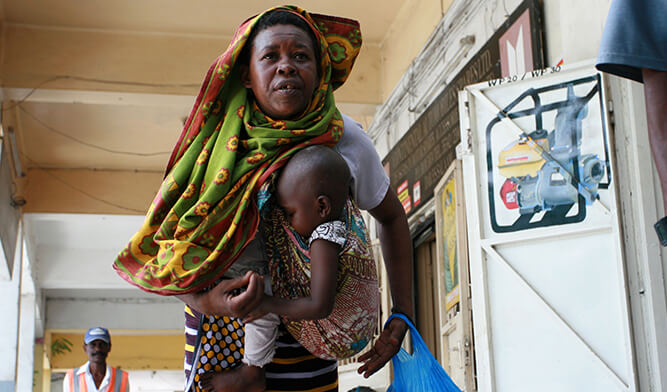
Located in the Kilimanjaro region of Tanzania, Narumu is a rural community consisting of four small villages–the combined population is 12,077 (1). Using a birth rate of 1 child per 37 (2), about 326 new babies are born to mothers in Narumu each year. What’s hidden behind this figure is the number of deaths for newborn babies and birthing mothers.
Narumu, like many rural areas in Tanzania, has high rates of maternal and infant deaths. Yearly, an average community of this size can expect to lose ten babies before the age of 1 month and 7 more before their first birthday. (3) Furthermore, about two birthing mothers will die each year (3). To understand these numbers, imagine a typical U.S. high school gymnasium filled with 1000 female students – 43 will face the death of their newborns and 7 will die giving birth. (4) The numbers are actually worse for rural communities in Tanzania. (5) Facing such grim statistics, it is not surprising that impending childbirth will temper a Narumu family’s excitement with fear.
There are many reasons for these high neonatal, infant, and maternal death rates. Rural Tanzanian communities have a large population of peasant farmers with meager incomes from the sale of bananas and other subsistence crops. Many families are too poor to pay for health care or transportation to the nearest hospitals which from Narumu are more than 30-60 minutes away. Poorer women tend to give birth at home only attended by a fellow villager or family member. Other issues include a lack of prenatal care and poor nutrition. Narumu does have two multi-purpose medical clinics, each about the size of a small to medium US urgent care clinic. Women who can come to one of these local facilities have access to health workers with some type of formal training but not even the most basic equipment such as an ultrasound machine.
Dorothy Mboya, founder of Tujenge Maisha, and native of Narumu understands this pain. Dorothy was born in poverty but with perseverance and support from her family, became a postpartum nurse, ultimately practicing in the United States. Visiting her native village yearly, she sees women and newborn babies dying simply due to a lack of basic supplies like gloves, clean cutting instruments, disinfectant fluid, and bulb syringes. In 2012, she founded Tujenge Maisha, a non-profit organization dedicated to improving this region’s maternal and neonatal conditions by providing education, access to supplies and equipment, and ultimately a dependable center for labor and delivery in Narumu.
Join Dorothy and the rest of the Tujenge Maisha community in our mission to improve neonatal and maternal health care in Narumu. Donate now!



